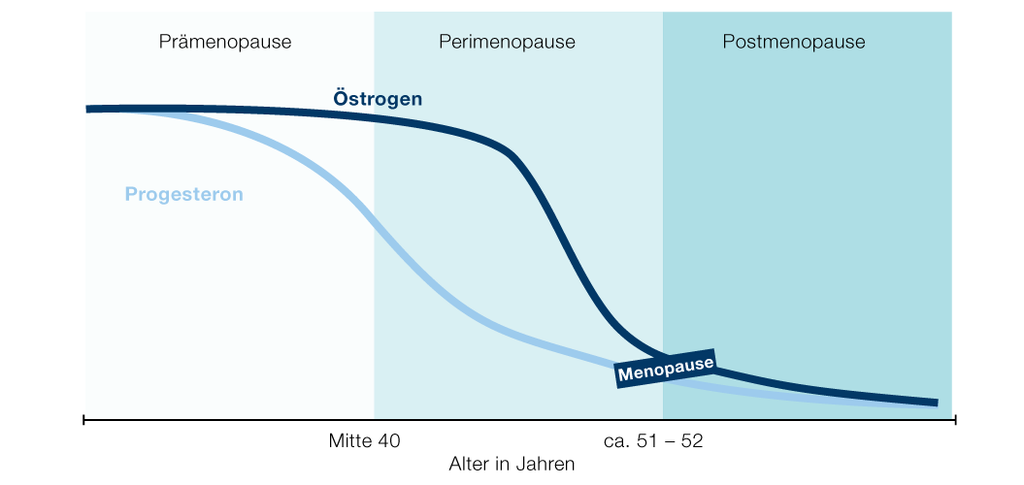
Sleep disorders in menopause
Many women suffer from difficulty falling asleep, hot flashes, and sleep disturbances during the years surrounding menopause. Here, we explain why sleep suffers when hormone levels are out of balance and what women can do to ensure a good night's sleep during menopause.
Table of contents
- What is menopause?
- What happens during menopause?
- Common symptoms during menopause
- Sleep disorders during menopause
- Tips for sleep during menopause
- Conclusion
1. What is menopause?
Menopause is a normal phase of every woman's life, marking the end of her fertile period. During menopause, significant hormonal changes occur, and the female cycle comes to an end with the onset of what is known as menopause. Menopause is therefore typically referred to as the last few years before, during, and after menopause.
The first signs of menopause usually appear between the ages of 40 and 50 and can last for several years. However, the onset and duration vary from woman to woman, as do the symptoms that occur. While some women experience no physical or psychological changes at all, others suffer from intense symptoms and severe sleep disturbances.
2. What happens during menopause?
During menopause, a change in female hormone production begins, particularly the hormones estrogen and progesterone. Their production gradually declines and eventually ceases completely. These hormonal changes are often associated with noticeable physical changes. The hormonal imbalance leads to irregular cycles, even the cessation of menstruation (menopause). Other symptoms such as hot flashes, sleep disturbances, and mood swings can also occur.

The sex hormones estrogen and progesterone are involved in numerous metabolic processes in our body and influence more than just the female cycle. In addition to its important role in regulating the cycle, progesterone has a positive effect on bone formation, stimulates metabolism, helps regulate digestion, and has a calming effect on the nervous system and psyche. Estrogen inhibits bone loss, supports a healthy metabolism, has an antidepressant effect, and contributes to healthy nerve and brain function. During menopause, the female body must first adjust to the new hormonal conditions.
3. Common symptoms during menopause
About two-thirds of women suffer from various mild to severe symptoms during menopause. Hot flashes, sleep disturbances and Mood swings are considered the most common and well-known symptoms. Indeed, more than 80% of premenopausal women experience hot flashes, and up to 60% suffer from significant sleep disturbances.

It is assumed that fluctuations in hormone levels disrupt the body’s thermoregulation, since both estrogen and progesterone are involved in the regulation of heart activity and Body temperature This makes it easier for sweating and spontaneous sensations of heat to occur, which can also occur at night and further disrupt sleep.
There may also be an increase in headaches, constipation, joint and muscle pain, loss of libido or an increased feeling of exhaustion, and psychological symptoms such as inner restlessness, anxiety and depressive moods are also possible.
4.Sleep disorders during menopause
Every second woman suffers from sleep problems during menopause or Sleep disorders. Changes in hormonal metabolism can also directly affect sleep patterns and quickly lead to problems falling asleep and staying asleep. Low estrogen levels not only promote hot flashes or night sweats, but also reduce Melatonin productionThe body’s own production of the sleep hormone decreases anyway increasing age slightly, so that deep sleep phases are naturally shorter and the depth of sleep is less. The lack of progesterone also prevents its relaxing and sleep-promoting effects.
And that’s not all: For many women, menopause is also a time of personal or professional change. stress and everyday worries, which place a strain on the psyche and prevent them from getting enough rest. Many women then wake up more frequently at night and are unable to fall back asleep immediately. All of these factors mean that women in menopause are more likely to suffer from stress and mood swings, and their sleep patterns can be significantly disrupted.
5. Tips for sleep during menopause

To ensure adequate and restful sleep, women in menopause should pay attention to good sleep hygiene and a healthy diet. To boost mood during the day and thus promote sleep in the evening (you can find more information on this in this Article), some exercise and plenty of daylight should be integrated into everyday life. At the same time, however, sufficient time should also be taken for rest and relaxation. With relaxing evening routines, you can then find peace more easily in the evening, so that your body and mind can prepare for sleep. In our sleep magazine, you will already find many Tips for an all-round healthy sleep.
The fact that the body is undergoing transition and reacts sensitively to hormonal changes is a completely natural process and shouldn't make any woman feel bad. Herbal relaxants or sedatives, for example, can help alleviate symptoms and improve well-being. However, if the symptoms become too severe or a persistent problem, medical advice should definitely be sought.
6. Conclusion
-
During menopause, the female hormonal balance begins to change and the production of the sex hormones estrogen and progesterone decreases.
-
About two-thirds of women suffer from mild to severe symptoms such as hot flashes, sleep disorders and mood swings during menopause.
-
Good sleep hygiene, a healthy diet, plenty of exercise in daylight, relaxing evening routines and herbal sedatives help to support restful sleep.
Best wishes and see you soon!



Leave a comment
This site is protected by hCaptcha and the hCaptcha Privacy Policy and Terms of Service apply.